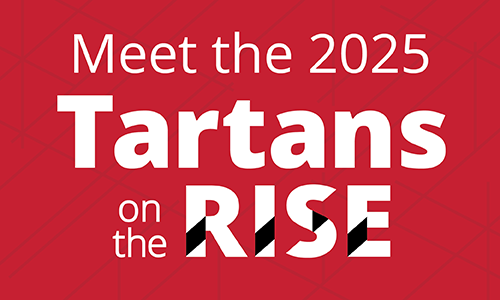Gregory Houchins, Founder and CEO, Chement
Decarbonizing Cement Production to Slow Climate Change
In 2018, physicist and doctoral candidate Gregory Houchins (MCS 2017, 2020) was exploring Carnegie Mellon’s Energy Week events when a guest speaker put him on the path to becoming the founder and CEO of Chement. Decarbonizing cement production started with a presentation on climate mitigation and a list of industries with the biggest carbon footprint.“[The speaker] mentioned cement, then brushed it off as a big problem where no one’s done very much. Throughout the continuation of my Ph.D., I really couldn’t stop thinking about it,” Greg says.
Cement is environmentally problematic in two ways: The intense heat needed to change the raw materials is energy intensive, and the transformation of calcium carbonate into calcium silicate releases tremendous amounts of carbon.
The electrochemistry of lithium batteries, which were a main focus of Greg’s research, held the answer. Electricity could replace heat to create the hard-setting building material the world voraciously craves. Replacing the kiln with something that works like a perpetually-charging battery solves the problem. It activates ionic reactions in the raw materials, and can use a different kind of calcium in the recipe that doesn’t release nearly as much carbon.
Greg’s startup, Chement, is in its early stages, and is just now taking his research into production. His team is still refining the electrified cement recipe and process. When that happens he’ll have a technology to offer cement manufacturers that are eager to decarbonize with a new, cleaner process for cement production.
“We can actually use less energy, drastically reduce carbon and cut the cost of cement, which is really remarkable,” Greg says. “Cement is this ubiquitous material that’s part of major infrastructure — everyone needs it. Making it more sustainable is what drives me.”
Story by Elizabeth Speed
